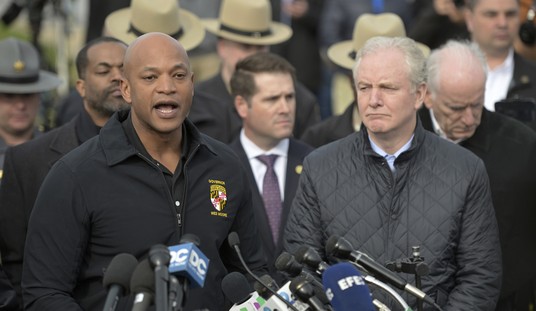The search for the inexplicable continues for Germanwings, their parent company, and Lufthansa after the discovery that their 27-year-old co-pilot deliberately crashed an Airbus with 149 other people on board. A search of Andreas Lubitz’ home did not turn up any evidence of religious or political motives, but they did find evidence of a hidden “medical” condition. Lubitz tore up a doctor’s note excusing him from duty on the fatal day:
German prosecutors said Friday they had found evidence that the co-pilot of the Germanwings plane which crashed in the French Alps appears to have hidden evidence of an illness from his employers.
Prosecutors in the western city of Duesseldorf said they seized medical documents from the home of Andreas Lubitz that indicate “an existing illness and appropriate medical treatment.”
Prosecutor Ralf Herrenbrueck said in a statement Friday that torn-up sick notes for the day of the crash “support the current preliminary assessment that the deceased hid his illness from his employer and colleagues.”
He said the search of Lubitz’s home revealed no suicide note or evidence of any political or religious motivation for his actions.
What was the “medical condition”? Thus far investigators haven’t gotten any more specific, but they revealed that Lubitz had been treated in the past for severe depression, but had been restored to full flight status:
KTLA notes that Lubitz may have had a recent break-up with a girlfriend:
The New York Daily News reported on the break-up, as well as the severity of Lubitz’ mental and emotional issues:
The Germanwings co-pilot believed to have deliberately crashed Flight 9525 recently broke up with his girlfriend, leaving a man with a history of depression in a fragile emotional state, according to a report.
Andreas Lubitz, 27, had a “serious relationship crisis with his girlfriend,” a mystery woman he was reportedly engaged to at one point, German newspaper Bild reported Friday.
Lubitz had a history of health issues, which he hid from his employers and colleagues, German prosecutor Ralf Herrenbrueck said Friday after seizing documents from Lubitz’s Dusseldorf apartment. …
In 2009, Lubitz underwent psychiatric treatment for 18 months for a “serious depressive episode” — around the same time he took six months off from flight training, Bild reported.
Lubitz was deemed “not suitable for flying” by the Phoenix, Ariz., flight school operated by Germanwings’ parent company Lufthansa, according to documents obtained by the paper. His depression forced him to retake flying classes and get “special regular medical examinations.”
The issue of pilot screening will undoubtedly become acute in the aftermath of this mass murder. German investigators will pass along the data to French prosecutors, but the airline and the industry in general will have a lot of explaining to do. Lufthansa, the parent company of Germanwings, still professes to be caught unawares:
Lufthansa Chief Executive Carsten Spohr told a news conference on Thursday that Lubitz had taken a break during his training six years ago, but did not explain why and said he had passed all tests to be fit to fly.
“Six years ago there was a lengthy interruption in his training. After he was cleared again, he resumed training. He passed all the subsequent tests and checks with flying colors. His flying abilities were flawless,” Spohr said.
No doubt that’s true; it would be impossible to believe that Lufthansa would knowingly put a depressed and suicidal pilot in the cockpit of a trainer, let alone a jet with 149 people on board. The question will be why they didn’t know, and whether or not Lubitz’ record should have been a red flag. Plenty of people get therapy for emotional issues without becoming a danger to themselves or others, especially those in high-stress jobs like airline pilots. If the stress was disabling, though, as it appeared to be for Lubitz a few years ago, then that prompts questions as to their oversight of a young man with relatively few flight hours, and especially why Germanwings allowed him to occupy the cockpit alone.
With that in mind, European airlines are already moving to fix the latter problem. Carriers based in the UK are now making it mandatory to have two people in the cockpit at all times:
American carriers already do this, although it’s less of a security precaution than the result of a security precaution. After 9/11, the cockpit configuration changed so that the door had to be unlocked at the door rather than from the flight console, in order to confirm via a check through the peephole that the entry was legitimate. A pilot can’t do that and fly the plane at the same time, so a flight attendant has to come in and perform the unlock procedure. The effect, though, is that there isn’t a situation where a pilot is left alone in the cockpit, regardless of the intent of the arrangement.
Also, US carriers also generally don’t hire pilots with so few hours of flying time as Lubitz had; one source in the industry told Hot Air yesterday that it typically takes 2,000 hours to get hired by airlines, and some carriers require even more than that. Those standards in the US may prompt questions in Europe as to why their carriers don’t match them.








Join the conversation as a VIP Member